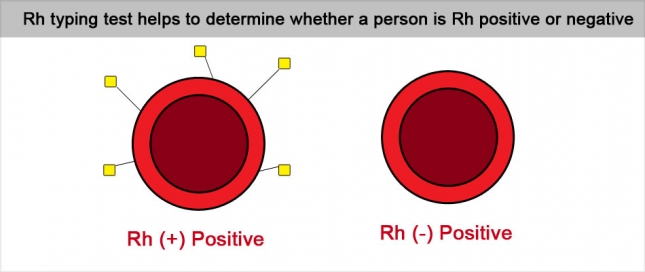Medically reviewed and approved by a board-certified member
Hemotology
Rh D GROUPING METHOD
By Dayyal Dg.Twitter Profile | Updated: Sunday, 06 August 2017 07:15 UTC

D antigen is the most immunogenic after ABO antigens and therefore red cells are routinely tested for D. Individuals are called as Rh-positive or Rh-negative depending on presence or absence of D antigen on their red cells. Following transfusion of Rhpositive blood to Rh-negative persons, 70% of them will develop anti Rh-D antibodies. This is of particular importance in women of childbearing age as anti-D antibodies can crosss the placenta during pregnancy and destroy Dpositive fetal red cells and cause hemolytic disease of newborn. In other sensitized individuals, reexposure to D antigen can cause hemolytic transfusion reaction.
In Rh D grouping, patient’s red cells are mixed with anti-D reagent. Serum or reverse grouping is not carried out because most Rhnegative persons do not have anti-D antibodies; anti-D develops in Rh-negative individuals only following exposure to Rh-positive red cells.
Rh typing is done at the same time as ABO grouping. Method of Rh D grouping is similar in principle to ABO grouping. Since serum or reverse grouping is not possible, each sample is tested in duplicate. Dosage effect (stronger antigenantibody reaction in homozygous cells i.e. stronger reaction with DD) is observed with antigens of the Rh system. Autocontrol (patient’s red cell + patient’s serum) and positive and negative controls are included in every test run. Monoclonal IgM anti-D antiserum should be used for cell grouping, which allows Rh grouping to be caried out at the same time as ABO grouping at room temperature. With monoclonal antisera, most weak and variant forms of D antigen are detected and further testing for weak forms of D antigen (Du) is not required. Differences between ABO and Rh grouping are shown in Table 788.1.
Table 788.1 Comparison of ABO grouping and Rh typing

- Comment
- Posted by Dayyal Dg.
Tags:
End of the article